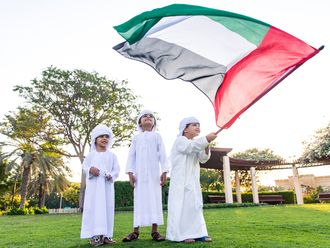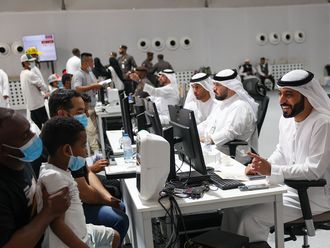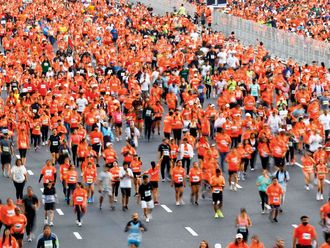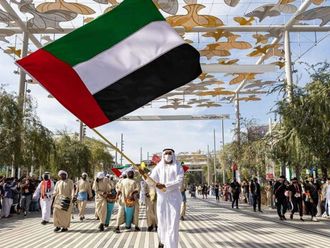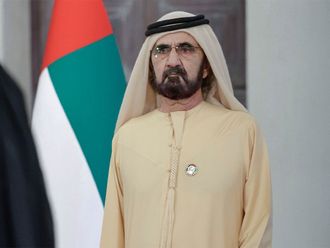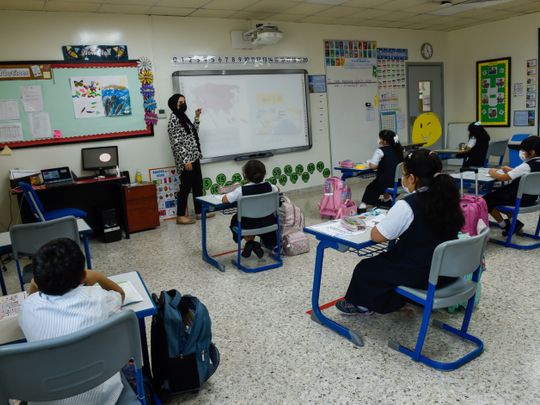
Dubai: Al Ittihad Private School — Jumeira (IPS-J) in Dubai boasts generations of loyalty from Emirati families, who represent nearly all its 2,415 students.
The reason? The school, since day one, 23 years ago, remains “deeply committed” to Islamic values, the Arabic language and Emirati heritage, all the while offering an American curriculum. This “balance” has secured the patronage of UAE nationals (who typically attend public schools) since the private school’s founding in 1998.
In an exclusive interview, IPS-J Director-General Dr Connie Weiner told Gulf News this ethos of the school sees Emirati students join from KG and stay on until they graduate from Grade 12, following in the footsteps of their parents. Even the school’s head of Parent Council is an IPS-J graduate.
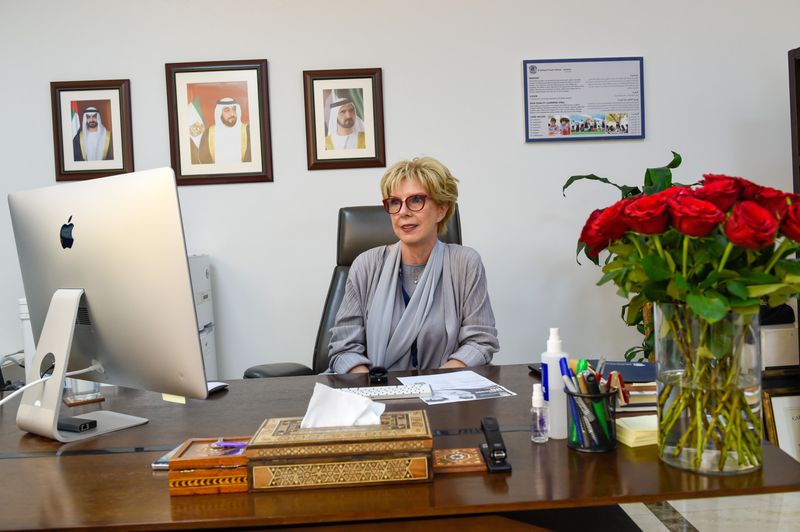
‘We’ve found a nice balance’
“We have a deep commitment from our parents because there is that feeling of family and belonging that we have. We are deeply committed to the Arabic language and to the culture of Islam. We have a very strong Islamic department and a very strong Arabic department, and at the same time we ensure our students compete internationally as well. We have found a very nice balance,” Dr Weiner said.
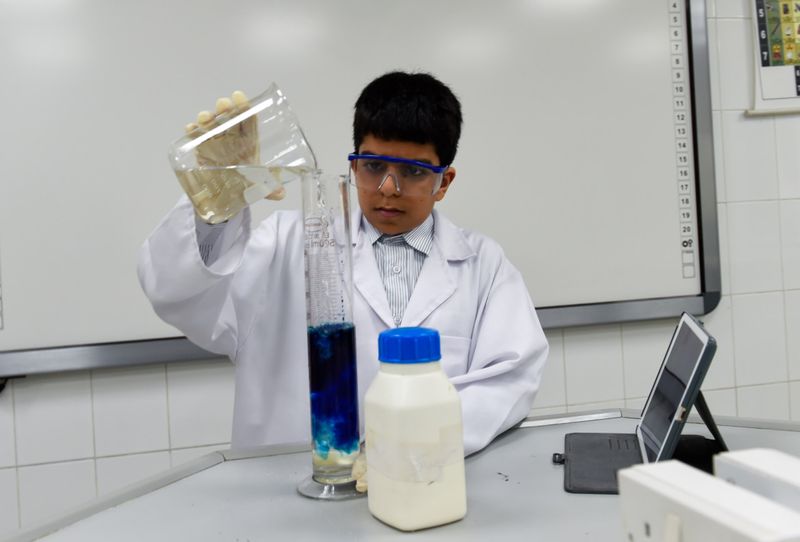
“We are also offering a greater variety when looking at the development of the whole child, while never forgetting our students’ Emirati heritage, which is also reflected in our vision statement … This is not something new for us, this is who we are. And, at the same time, we have a strong commitment from the board that we also are able to offer everything that students need, in terms of facilities and our positive education model. Well-being is one of the key pillars that we offer at our school. And when you put this all together, that’s what makes us unique.”
Flagship schools
IPS-J is the second and flagship school among five IPS branches. The first IPS was established in 1975 in Al Mamzar, Dubai by a group of UAE nationals. Today it has a total of five campuses — three in Dubai, one in Abu Dhabi and one in Al Ain. The chairman is Faraj Bin Hamoodah.
‘Miniature model of UAE’
The strong focus of IPS-J on values professed by the Islamic faith and the culture of the Emirates, of tolerance and community, for example, meant the school was selected to host the pilot phase of the UAE’s new Moral Education programme before it was announced, said Dialla Mustafa, Director of Inclusion — Middle & High School Curriculum, IPS-J. She added that the school is like “a miniature model” of educational developments taking shape in the UAE.
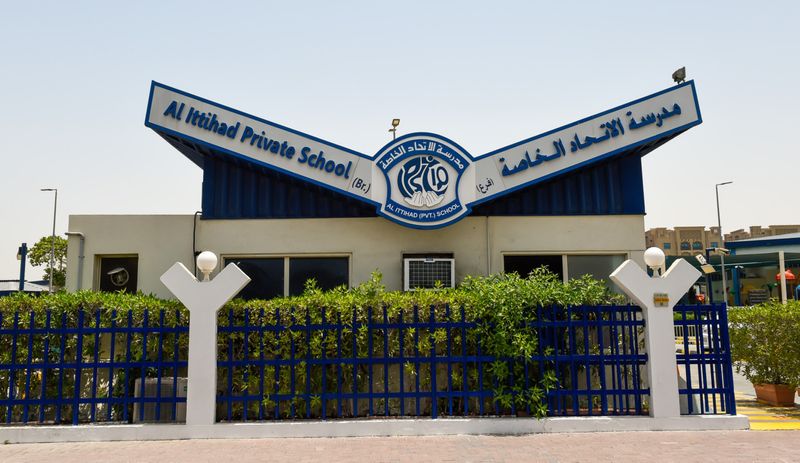
Mustafa said the school, with nearly all students being Emirati, finds itself as “the pioneer” and first adopter of new national initiatives. “For example, we create our timeline based on the National Agenda and its target points — what are their requirements; where do they want the Emirati students to be? We, as an Emirati school, as a private school, are under this responsibility in ways other schools are not.”
Teaching values
Meanwhile the provision for and emphasis on Islamic studies and Arabic begins from the start in KG and is sustained all the way through to Grade 12, said Naema Abdel Hameed, Head of Islamic Department, IPS-J. She added that no opportunity is missed in encouraging and supporting students to learn and demonstrate these values and practices. Examples include participation in the Arab Reading Challenge; presenting the support staff with gifts and recognition on ‘Appreciation Day’; Quran recitation and memorisation contests; participating in occasions such as Zayed Humanitarian Day and National Day; Ramadan-themed activities, and many more. The school community even holds a celebration whenever one of the girls starts wearing the hijab, Abdul Hameed said.
“We are combining the spirit of globalisation and at the same time staying true to Islamic values. We are following the steps of our father, the late Sheikh Zayed Bin Sultan Al Nahyan [the UAE’s founding father]. He was always encouraging his people to learn about their religion and be global thinkers at the same time; be better Muslims and a role model for others,” Abdul Hameed added.
‘We take well-being seriously’
The school has also led the way in student wellbeing, said Juliana Abdel Samad, Quality Assurance & Parent Relation Executive, IPS-J. The school first piloted the official five-year Dubai School Wellbeing Census launched in 2017 and again more recently for the high school phase. “We take wellbeing very seriously, everyone is involved — the Student Council, Parent Council, teachers, senior leadership,” said Abdel Samad.
“We have wellbeing champions through our Student Council who are the voice of other pupils in regards to well-being … Every year we do a workshop with the teachers also and we look at the results. Based on that, we make our Action Plan for wellbeing. For example, we had noticed in the second year of the census that most of our students didn’t have breakfast in the morning. So we looked at what can we do and we offered a special breakfast menu in our canteen.
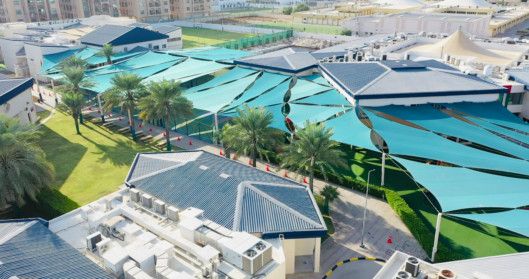
“We also looked at resilience and how students think about their future, so we included our counsellor for the high school in more sessions with the students. The results indicate we’re consistently going up in wellbeing.”
Rising demand
Also consistently going up is demand for IPS-J, Dr Weiner said, and the school is expanding in the coming academic year, set to welcome some 300 new students. The already-sprawling campus is adding a new elementary building, a new gym and new library. The boys’ and girls’ sections will meanwhile be remodelled and more classrooms added. The school will soon have a total of three paddle tennis courts. Also joining the new academic year will be three more counsellors, while grades one and two are expected to resume in full face-to-face mode on-site.
Tuition fees for 2021-2022 range from Dh21,435 for pre-KG to Dh44,039 for Grade 12.
Dr Weiner said “it’s been very rewarding to work here because it’s just an amazing, supportive team; we all are on the same page.”


